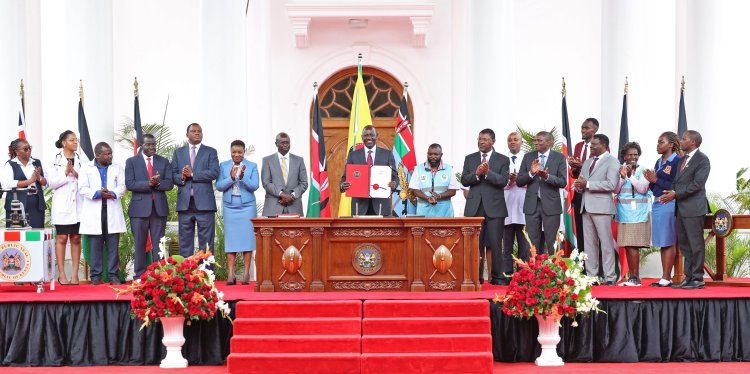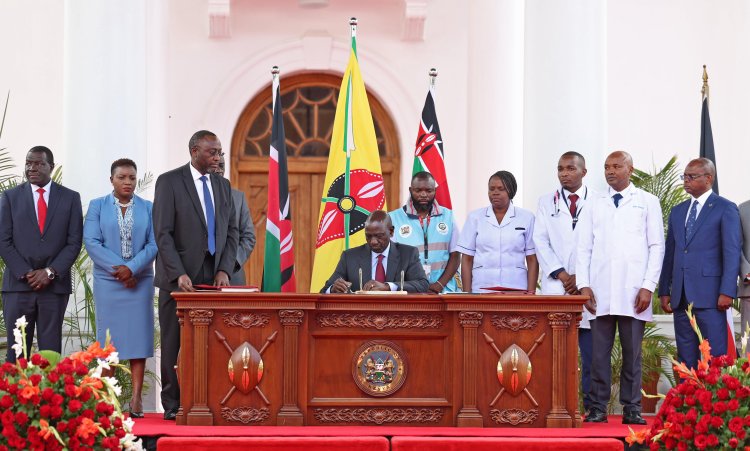Ruto Signs 4 Bills Into Law, Including One Abolishing NHIF
The signing of the bills took place at State House during a publicised event held at its courtyard, a notable shift from the bill signing events which take place indoors in closed-door events.

President William Ruto on Thursday, October 19 signed four Universal Health Coverage (UHC) bills into law.
The signing of the bills took place at State House during a publicised event held at its courtyard, a notable shift from the bill signing events which take place indoors in closed-door events.
The publicising of the signing of the bills, which was also televised, carries a major significance given that it comes a day before Mashujaa Day on Friday, October 20 in Kericho County where UHC is expected to be launched officially.
President Ruto who spoke after the signing of the bills, remarked that the country has made a huge step towards transforming its healthcare system.

President William Ruto signs four Universal Health Coverage Bills into law on October 19, 2023. /PCS
“Today we have made a significant step towards making healthcare universal for all Kenyans. I thank and commend the people of Kenya for actively shaping these laws through various public engagement platforms," stated Ruto.
"These laws will transform healthcare in Kenya, save lives, empower communities and make us a stronger and healthier nation."
The President acknowledged that the effort to sign the bills was not a single-person task and that it took a team of advisors as well as lawmakers in Parliament who contributed to the success of the bills.
He added that the plan was put together over the last two years, ahead of campaigns, adding that not many expected his plan to manifest into law.
"The people of Kenya talked loudly for a system that leaves nobody begins, where families do not lose their properties or savings due to illness," he said.

 admin
admin 





